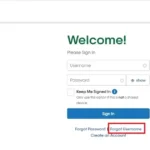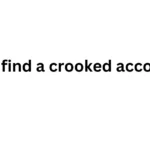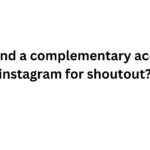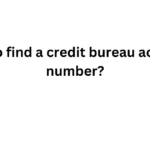Landing your first accounting job with no direct experience might seem like climbing a steep hill, but don’t worry! Many people have successfully done it before, and you can too. It just requires a bit of planning, effort, and the right approach. This guide will show you the steps to take to make your dream of becoming an accountant a reality.
Understanding the Accounting Field
Before we jump into the job hunt, let’s understand what the accounting field looks like. Accountants are like financial detectives. They keep track of money, make sure records are correct, and help businesses make smart decisions.
There are different types of accounting roles:
- Bookkeepers: They record daily transactions and keep the financial books organized.
- Tax Accountants: They help people and businesses file their taxes correctly.
- Auditors: They check financial records to ensure everything is accurate and legal.
- Forensic Accountants: They investigate financial crimes.
- Management Accountants: They provide financial information to help managers make decisions.
Even without prior experience, many of these roles have entry-level positions perfect for starting your career.
How to Find an Accounting Job With No Experience: Building Your Foundation
While you might not have direct accounting job experience, you can still build a strong foundation to impress potential employers. Here’s how:
Get the Right Education
Most accounting jobs require at least a bachelor’s degree in accounting, finance, or a related field. Some positions, like Certified Public Accountant (CPA), may require additional certifications and education.
- Consider an associate degree: An associate degree in accounting can open doors to entry-level roles like bookkeeping or accounting clerk.
- Look into online courses: Websites like Coursera, edX, and Udemy offer accounting courses that can boost your knowledge and resume.
Develop Essential Skills
Accountants need a specific set of skills to succeed. Here are some you can start developing now:
- Analytical skills: Accountants need to analyze financial data and spot trends or errors.
- Attention to detail: Accuracy is crucial in accounting, so strong attention to detail is a must.
- Math skills: You need to be comfortable working with numbers and performing calculations.
- Communication skills: Accountants need to explain complex financial information to others clearly.
- Technology skills: Familiarity with accounting software and spreadsheets like Excel is essential.
Practice using spreadsheet software and try some basic accounting exercises to sharpen your skills.
Gain Relevant Experience
Even without a formal accounting job, you can gain related experience to boost your resume:
- Volunteer your services: Offer to help friends, family, or local non-profits with their bookkeeping or taxes.
- Take on internships: Internships provide valuable experience and can often lead to full-time jobs.
- Look for part-time jobs: Part-time roles like cashier or data entry clerk can develop skills relevant to accounting.
| Experience Type | Description | Benefits |
|---|---|---|
| Volunteering | Offer your accounting skills to non-profit organizations or community groups. | Gain practical experience, network with professionals, and make a positive impact on your community. |
| Internships | Temporary positions within companies that provide hands-on experience in a specific field. | Learn from experienced professionals, gain industry insights, build your resume, and potentially secure a full-time job offer. |
| Part-time jobs | Jobs with fewer working hours than a full-time position, often in related fields like retail or administration. | Develop transferable skills such as customer service, data entry, and attention to detail, which can be valuable in accounting roles. |
How to Find an Accounting Job With No Experience: Launching Your Job Search
Once you have a solid foundation, it’s time to actively search for accounting jobs. Here’s how to make your search effective:
Network With Professionals
Networking is a powerful tool for finding job opportunities. Connect with people in the accounting field:
- Attend industry events: Career fairs, accounting conferences, and workshops are great places to meet potential employers.
- Join professional organizations: Organizations like the American Institute of Certified Public Accountants (AICPA) offer networking opportunities and career resources.
- Use LinkedIn: Connect with accountants and recruiters on LinkedIn and engage in industry discussions.
Utilize Job Search Platforms
Online job boards are a great resource for finding accounting positions:
- Indeed: A general job board with a wide range of accounting positions.
- LinkedIn: A professional networking site with a robust job search function.
- Accounting.com: A specialized job board for accounting and finance professionals.
- Company websites: Many companies post job openings directly on their websites.
| Platform | Description |
|---|---|
| Indeed | A general job board with a wide range of accounting positions, including entry-level roles. |
| A professional networking site with a job search function and opportunities to connect with professionals in the accounting field. | |
| Accounting.com | A specialized job board for accounting and finance professionals, with listings for various experience levels. |
| Company Websites | Many companies post job openings directly on their websites, allowing you to apply directly to the source. |
Craft a Strong Resume and Cover Letter
Your resume and cover letter are your first impression on potential employers. Make them count:
- Highlight relevant skills: Even without direct experience, emphasize skills from other areas that are relevant to accounting (e.g., attention to detail, analytical skills from academic projects).
- Tailor your resume: Customize your resume for each job application, highlighting the skills and experiences most relevant to the specific role.
- Write a compelling cover letter: Explain your passion for accounting and how your skills make you a good fit for the company and the position.
- Have a friend or mentor review your resume and cover letter before you send them out.
Ace the Interview
The interview is your chance to shine and show your enthusiasm for accounting:
- Research the company: Learn about the company’s values, culture, and recent activities.
- Prepare for common questions: Practice answering questions about your skills, experience, and career goals.
- Ask thoughtful questions: Show your interest by asking questions about the company and the role.
- Dress professionally: Make a good impression by dressing appropriately for the interview.
Alternative Paths to an Accounting Career
If you’re finding it challenging to land a traditional accounting job right away, consider these alternative paths:
Temporary Accounting Jobs
Temporary or contract accounting positions can be a great way to gain experience and build your network. These roles often lead to full-time opportunities.
Accounting-Adjacent Roles
Look for roles related to accounting that can provide valuable skills and experience:
- Accounts payable/receivable clerk: Responsible for processing invoices and payments.
- Data entry clerk: Focuses on accurately inputting financial data into systems.
- Payroll clerk: Handles employee payroll and tax withholdings.
These roles can help you transition into a full-fledged accounting position later on.
Tips for Success
- Be persistent: Finding your first accounting job takes time and effort. Don’t give up!
- Stay positive: A positive attitude can go a long way in your job search and interviews.
- Continue learning: The accounting field is constantly changing. Keep learning and developing your skills.
- Seek feedback: Ask for feedback on your resume, cover letter, and interview performance to improve.
- Build your professional brand: Create a professional online presence on platforms like LinkedIn.
Conclusion
Starting an accounting career with no experience requires a strategic approach, but it’s definitely achievable. By focusing on education, skill development, networking, and crafting a strong resume, you can increase your chances of landing that first accounting job. Remember to be persistent, stay positive, and never stop learning. With dedication and the right approach, you can successfully launch your accounting career and achieve your professional goals.
FAQs
Is it hard to get an accounting job with no experience?
It can be more challenging to get an accounting job without direct experience, but it’s definitely possible. Focus on building a strong foundation through education, relevant skills, and volunteer or internship experience.
What are some entry-level accounting jobs I can apply for with no experience?
Some entry-level accounting jobs that may not require extensive experience include accounting clerk, bookkeeper, accounts payable/receivable clerk, and junior tax preparer.
How can I make my resume stand out without accounting experience?
Highlight relevant skills gained from other areas, such as attention to detail, analytical skills, and proficiency in spreadsheet software. Tailor your resume to each job application and write a compelling cover letter explaining your passion for accounting.
How can I gain accounting experience without a formal job?
Volunteer your accounting skills to non-profits, take on internships, or consider part-time roles that develop transferable skills like data entry or customer service.
Where can I find accounting jobs for people with no experience?
Utilize online job boards like Indeed, LinkedIn, and Accounting.com. Network with professionals in the field and check company websites for job openings. Sources and related content







